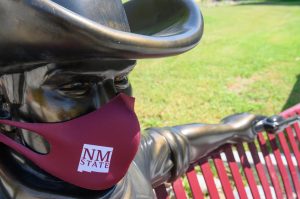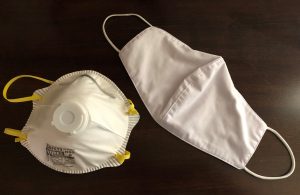“At a quick glance, all the face masks tested seem to be highly effective in blocking the foreign airborne cough and sneeze droplets,” Kota said. “Even the worst performer – the cloth mask – could filter almost 96.5 percent droplets and leaked only 3.5 percent. However, when we link these leakage percentages to the viral load in a sneeze or a cough of an infected person, we found that even these small leakages could be sufficient to infect a susceptible person. Since this result is more relevant to close interaction scenarios, we proposed in the paper to consider avoiding such interactions if possible. The results are also applicable to any outdoor or indoor scenario in general where air velocities could be similar to the tested velocity, for example with desk fans and car air conditioning systems.”
The researchers tested five types of masks, N-95, surgical, cloth with a filter, cloth and wetted cloth with a filter. The N-95 offered the best protection as it was the only mask that didn’t experience any leakage of airborne droplets.
To read the entire paper visit https://aip.scitation.org/doi/10.1063/5.0035072. The study was funded by NMSU’s College of Engineering and the Office of the Vice President of Research.
– 30 –


